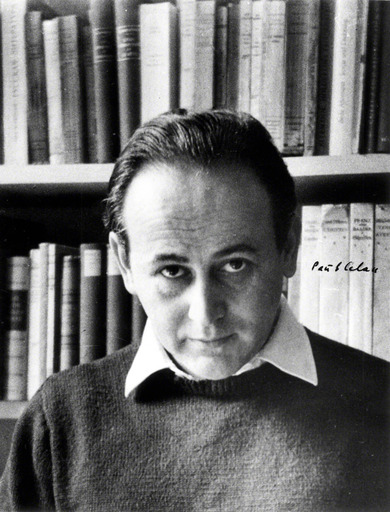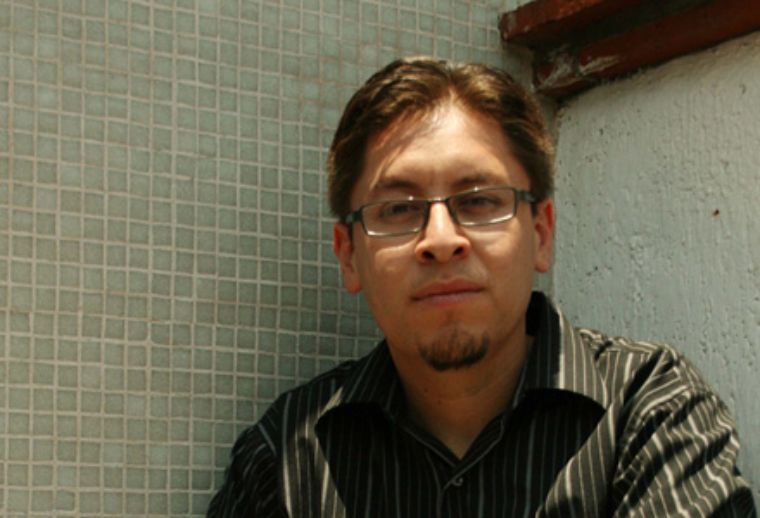Paul Celan's 1960 speech, "The Meridian," is a gold mine of poetics. Celan explores the "theatrical death," which he suggests is iambic. The bolding is mine.
Ladies and gentlemen, I have placed my acute accent. I cannot hide from you any more than from myself that, if I took my question about art and poetry, a question among others, if I took it of my own--though perhaps not free--will to Buchner, it was in order to find his way of asking it.
Art makes for distance from the I. Art requires that we travel a certain space in a certain direction, on a certain road.
I am not looking for a way out, I am only pushing the question farther in the same direction...
La poésie, elle aussi, brûle nos étapes.
A man who walks on his head, ladies and gentlemen, a man who walks on his head sees the sky below, as an abyss.
He talks about poetry's unique DNA, a "strangeness and distance (perhaps of its own making).. for the sake of an encounter." A unique space in which brings "two kinds of strangeness next to each other." In order to sort "the strange from the strange," Celan introduces a word, "Atemwende," which means a turning of breath.
Poetry is perhaps this: an Atemwade, a turning of our breath. Who knows, perhaps poetry goes its way--the way of art--for the sake of just such a turn? And since the strange, the abyss, and Medusa's head, the abyss and the automaton, all seem to lie in the same direction--it is perhaps this turn, this Atemwende, which can sort out the strange from the strange?... Perhaps, along with the I, estranged and freed here, in this manner, some other thing is also set free?
Perhaps, after this, the poem can be itself... can in this now art-less, art-free manner go other ways, including the ways of art, time and again? Perhaps.
And so we witness the supra-reality of the poem's existence. Celan mentions the poetic practice of that time as one which shows a "strong tendency towards silence."
...the poem holds its ground on its own margin. In order to endure, it constantly calls and pulls itself back from an 'already-no-more' into a 'still-here.'
This 'still-here' can only mean speaking. Not language as such, but responding and --not just verbally-- 'corresponding' to something.
He describes the poem as a "presence in the present," almost as if it has a separate pulse, an Adam in the garden finding himself lonely.
The poem is lonely. It is lonely and en route. Its author stays with it.
Does this very fact not place the poem already here, at its inception, in the encounter, in the mystery of encounter?
The poem intends another, needs this other, needs an opposite. It goes toward it, bespeaks it.
For the poem, everything and everybody is a figure of this other toward which it is heading.
It's hard for me to imagine a lyricism this thick and interiorized in the current poetry world. We are seasoned in sharp edges, razors, word flips.... and maybe missing something. Celan doesn't make an argument for enlarging or expanding the scope of what we call art. In fact, he urges the opposite: "take art with you into your innermost narrowness. And set yourself free."
Inconclusively, poignantly, Celan pushes us deep inside these bodies which housed the monsters of the 20th century--now house the monsters of the 21st century--the planet's most reckless species, the hearts marred by dread.
...are these paths only detours, detours from you to you? But they are, among how many others, the paths on which language becomes a voice. They are encounters, paths from a voice to a listening You, natural paths, outlines for existence perhaps, for projecting ourselves into the search for ourselves... A kind of homecoming.
“Emptiness, my bride, who whistles who listens?”
“But when there is talk of art, there is often somebody who does not really listen.”
Jerome Rothenberg's book, Technicians of the Sacred, was hailed as the beginning of the ethnopoetics movement. His blog, Poems and Poetics, regularly features unique poets and writers from around the world.
I want to zoom into a fascinating conversation between Rothenberg and Heriberto Yépez, a conversation composed of fragments and pieces related to the disjointedness of the present, originally published in S/N New World Poetics, a publication edited by Charles Bernstein & Eduardo Espina. © 2012 and discovered by this mammal on Rothenberg's blog. A few fascinating quotes by Yepez:
A pantopia is an imaginary space or archive of persistent ruins and new components that not only constitute a compilation of free parts but most importantly makes possible the construction of a neo-memory—in which lightness-of-being permeates every stratum of reality.
The American dream means the dream of a new memory.
Pantopia has been also explored by American science-fiction and Hollywood movies—in order to develop a cybermnemics, a control of memories. In this shift from historical time to total containment-space, gathering, remixing, cross-reference and archiving are the rules of the game.
In writing almost everything is reactionary in advance. Literature can be defined as the forerunner of new methods of co-control in the upcoming de-capitalism.
“Cut to the chase” is how History was dismembered. And how cut-spatialized time invented both short story and collage.
The denial of depth in current American experimentalism and the denial of mammal evolution in the human species in American mainstream schools are part of the same American logic: this—We—is the only reality that can exist. Nothing can surpass us or be more profound than this.
Yepez on ethnopoetics * "About Me: In English", a poem by Heriberto Yépez * A counter-interview with Heriberto Yépez * Heriberto's vanished writing project, the Pessoan gesture or the post-modern post-workshop route * Archives of drafts for Paul Celan's Meridian at Stanford University


